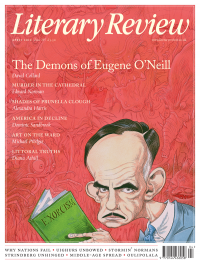Jonathan Derbyshire
Say What You Mean
Iris Murdoch, Philosopher: A Collection of Essays
By Justin Broackes (ed)
When Iris Murdoch returned to Oxford in the autumn of 1948 to take up a fellowship at St Anne’s College, after a brief sojourn in Cambridge where she’d gone with the intention of beginning a PhD on Edmund Husserl, she found herself at the centre of the English-speaking philosophical world. The years after the Second World War were a sort of golden age for philosophy in this country, and the discipline flourished especially by the banks of the Isis, under the aegis of two men in particular – J L Austin and Gilbert Ryle.
Austin and Ryle were the leading lights of so-called ‘ordinary language’ or ‘linguistic’ philosophy, which viewed the purpose of the subject as the study of the words or concepts we employ, rather than of the facts or phenomena to which those concepts are applied. The ordinary language philosophers saw philosophy

Sign Up to our newsletter
Receive free articles, highlights from the archive, news, details of prizes, and much more.@Lit_Review
Follow Literary Review on Twitter
Twitter Feed
How to ruin a film - a short guide by @TWHodgkinson:
Thomas W Hodgkinson - There Was No Sorcerer
Thomas W Hodgkinson: There Was No Sorcerer - Box Office Poison: Hollywood’s Story in a Century of Flops by Tim Robey
literaryreview.co.uk
How to ruin a film - a short guide by @TWHodgkinson:
Thomas W Hodgkinson - There Was No Sorcerer
Thomas W Hodgkinson: There Was No Sorcerer - Box Office Poison: Hollywood’s Story in a Century of Flops by Tim Robey
literaryreview.co.uk
Give the gift that lasts all year with a subscription to Literary Review. Save up to 35% on the cover price when you visit us at https://literaryreview.co.uk/subscribe and enter the code 'XMAS24'